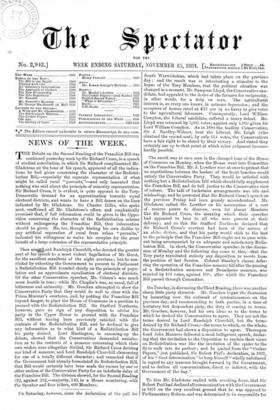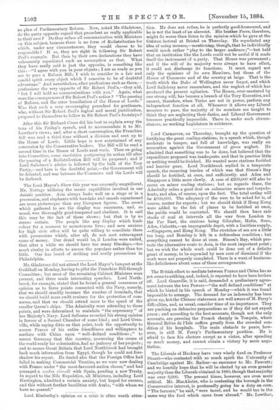To this Mr. Gladstone replied with crushing force, that Sir
Robert Peel had declined all communication with the Government in 1831 on the very excellent ground that he was opposed to Parliamentary Reform, and was determined to be responsible for no plan of Parliamentary Reform. Now, asked Mr. Gladstone, do the party opposite regard that precedent as really applicable to their case ? Do they refuse all communication with Ministers on this subject, because there is no form of Redistribution for which, under any circumstances, they would choose to be responsible ? If so, they are right in following Sir Robert Peers example. But then by their own declarations they have vehemently repudiated such an assumption as that. What they have really said is just the opposite, is something like this :—" I agree with you in your objects ; I am as ready as you are to pass a Reform Bill ; I wish to consider in a fair and candid spirit every object which I conceive to be of doubtful advantage." And nevertheless, after professions such as these,— professions the very opposite of Sir Robert Peel's,—they add, "but I will hold no communications with you." Again, what were the consequences of Sir Robert Peel's action ? "The passing of Reform, and the utter humiliation of the House of Lords." Was that such a very encouraging precedent for gentlemen, who, without Sir Robert Peel's logical and moral justification, proposed to themselves to follow in Sir Robert Peel's footsteps?



































